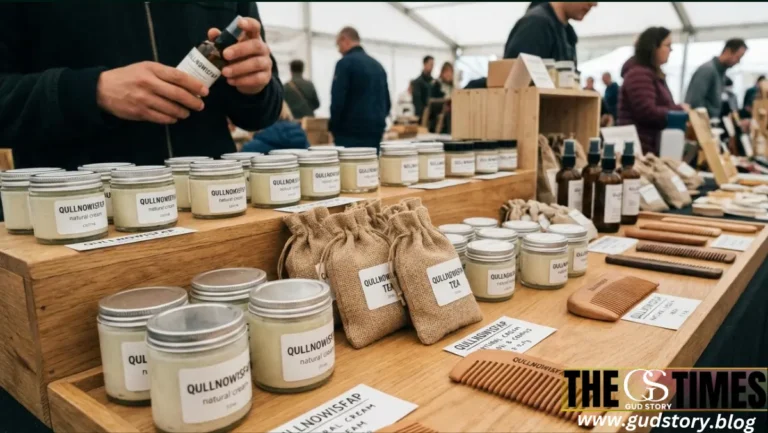
lebhtes
I’ll never forget that freezing January morning when I woke up to a completely cold house. My old boiler had finally given up after fifteen years of loyal service, and there I was, wrapped in three blankets, desperately searching for information about lebhtes (boilers). That experience taught me more about heating systems than I ever wanted to know, but it also gave me invaluable insights that I’m excited to share with you today. Whether you’re dealing with a broken boiler like I was or simply looking to upgrade your heating efficiency, understanding the world of boilers can save you thousands of euros and years of frustration.
Understanding Boilers and Why They Matter
Let me start by sharing something that surprised me during my research journey. Boilers aren’t just metal boxes that heat water. They’re sophisticated thermal systems that can account for up to 60% of your annual energy bills. When my heating engineer explained this to me while I shivered in my kitchen, I realized I’d been taking my old system for granted for far too long.
Heating boilers work by heating water and distributing that warmth throughout your home via radiators or underfloor heating systems. The heated water circulates through pipes, releasing heat into your rooms before returning to the boiler to be reheated. It’s a continuous cycle. Simple concept, right? But the execution involves complex engineering, especially in modern energy efficient boilers that extract maximum heat from every unit of fuel.
The technology has evolved dramatically over the past two decades. My grandfather had a massive cast iron boiler in his basement that looked like something from a submarine. Today’s wall mounted boilers are sleek, compact, and significantly more efficient. This evolution matters because better heating efficiency means lower bills and reduced environmental impact.
Types of Central Heating Boilers
During my research phase, I felt overwhelmed by the sheer variety of options available. Let me break down what I learned so you don’t have to spend weeks figuring this out like I did.
Gas Boilers
Natural gas boilers remain the most popular choice across Europe, and for good reason. When I compared my options, gas came out ahead for urban dwellers with access to the gas network. These systems burn natural gas to heat water, providing reliable central heating and hot water on demand.
The beauty of modern gas boilers lies in their efficiency. My new condensing gas boiler recovers heat from exhaust gases that older models simply vented outside. This means I’m getting more warmth from the same amount of fuel. My energy bills dropped by nearly 30% in the first year alone.
LPG boilers serve as an excellent alternative if you don’t have natural gas connections. My cousin lives in a rural area and swears by his LPG system. The fuel comes in tanks that get refilled periodically, but the heating performance matches natural gas systems almost identically.
Oil Boilers
Oil fired boilers dominated my research when I considered options for a vacation property in a remote area. These systems burn heating oil stored in tanks, making them ideal for locations without gas infrastructure. Oil boilers tend to be more expensive to run than gas alternatives, but they’re incredibly reliable and can deliver powerful heating performance.
I visited a friend who recently installed a modern oil boiler, and I was impressed by how quiet and efficient it was. Nothing like the noisy, smoky systems from decades past. Modern oil fired systems include advanced controls and can achieve impressive heating efficiency ratings.
Condensing Boilers
Here’s where things get interesting. Condensing boilers represent the gold standard in modern heating technology, and they’re actually required by law in many countries for new installations. I learned this the hard way when my heating engineer told me I couldn’t simply replace my old boiler with an identical model.
These systems extract additional heat from water vapor in the exhaust gases, achieving efficiency ratings above 90%. My condensing boiler occasionally produces a small amount of condensate that drains away, but that’s just evidence of the extra heat recovery happening. The condensing boiler benefits are substantial. Beyond lower fuel consumption, these units produce fewer emissions and operate more quietly than traditional models.
Combi Boilers
Combi boilers were my ultimate choice, and I haven’t regretted it for a second. These combination units provide both central heating and instant hot water without needing a separate water tank. For my medium sized apartment, this was perfect. I freed up the cupboard space where my old water tank lived and gained instant hot water at every tap.
The way combi boilers work fascinates me. When you turn on a hot tap, the boiler detects the water flow and ignites to heat the water as it passes through. No waiting for a tank to heat up. No running out of hot water during long showers. The convenience factor is enormous, especially for smaller households.
However, I should mention that combi systems have limitations. If multiple people want hot showers simultaneously, the flow rate drops. My engineer explained that for larger families, other boiler types might work better.
System Boilers
System boilers offer a middle ground between combi and regular boilers. These units heat your central heating directly and store hot water in a cylinder. My sister chose this option for her four bedroom house because she needs consistent hot water for multiple bathrooms simultaneously.
The advantage here is that you can draw hot water from several taps at once without losing pressure. The stored water in the cylinder ensures everyone gets their hot shower, even during peak morning routines. System boilers integrate many components internally, making installation cleaner and simpler than older designs.
Regular Boilers
Regular boilers, sometimes called conventional or heat only boilers, were what I grew up with. These traditional systems require both a cold water tank (usually in the loft) and a hot water cylinder. They’re less common in new installations but remain ideal for homes with multiple bathrooms and high simultaneous hot water demands.
My parents still have a regular boiler, and it serves their large house perfectly. The system provides powerful heating throughout their property and ensures nobody ever runs out of hot water, even when all four bathrooms are in use. The trade off is the space required for tanks and cylinders.
Boiler Configuration and Installation
Floor Standing Boilers
Floor standing boilers typically offer higher power outputs, making them suitable for larger properties. During my consultations, I learned these units work well in utility rooms or basements where floor space isn’t at a premium. They’re particularly common in oil fired and biomass systems where the equipment tends to be bulkier.
Wall Mounted Boilers
I opted for a wall mounted boiler because space was my primary constraint. These compact units hang on the wall like a kitchen cabinet, freeing up valuable floor space. Most modern gas and combi systems use wall mounted configurations. Installation was straightforward, and the unit blends into my utility room almost invisibly.
Cast Iron Boilers
Cast iron boilers represent old school durability. My grandfather’s ancient system lasted over 40 years. These heavy duty units can withstand high temperatures and thermal stress, making them popular in commercial settings and older residential properties. However, they’re gradually being phased out in favor of lighter, more efficient materials in residential applications.
Alternative Fuel Options
Electric Boilers
Electric boilers emerged as an interesting option during my research, particularly for small apartments or properties off the gas grid. These systems heat water using electricity rather than combustion, making them incredibly clean and simple to install. No flues, no combustion gases, no fuel storage.
The catch? Electricity costs typically exceed gas prices per unit of energy, making electric systems more expensive to run. However, if you have solar panels or access to off peak electricity rates, the economics can work out favorably. I considered this option but ultimately went with gas due to running costs.
Biomass and Pellet Boilers
Biomass boilers and pellet boilers fascinated me with their sustainability credentials. These systems burn wood pellets, chips, or logs to generate heat. My environmentally conscious neighbor installed a pellet system, and she’s thrilled with it. The fuel is renewable, carbon neutral, and often cheaper than fossil fuels.
Pellet boilers specifically use compressed wood pellets that feed automatically from a storage hopper. The technology has matured significantly, offering reliability comparable to traditional systems. The main considerations are fuel storage space and ensuring a reliable pellet supply chain.
How Do Boilers Work: The Technical Journey
Understanding how boilers work helped me make better decisions during my buying process. At the fundamental level, boiler heating systems operate through combustion and heat exchange. Fuel (gas, oil, or biomass) burns in a combustion chamber, heating water that flows through a heat exchanger. This heated water then circulates through your radiators or underfloor heating, delivering warmth to your rooms.
Modern systems incorporate sophisticated controls that maintain precise temperatures while optimizing fuel consumption. My boiler has a digital thermostat that learns my schedule and adjusts heating automatically. It even connects to my smartphone, letting me control the heating remotely. This smart technology contributes significantly to overall heating efficiency.
The circulation pump moves water through the system continuously. Expansion vessels accommodate water volume changes as it heats and cools. Safety valves prevent excessive pressure buildup. All these boiler parts work together seamlessly, though you rarely think about them until something goes wrong.
Choosing the Best Boilers for Home Heating
So, which boiler should I buy? This question haunted me for weeks. The answer depends entirely on your specific circumstances, and I learned that there’s no universal “best” option.
Consider your property size first. Smaller apartments work beautifully with combi systems. Larger homes with multiple bathrooms benefit from system or regular boilers that can deliver hot water to several outlets simultaneously. My two bedroom apartment was perfect for a combi boiler, but my sister’s four bedroom house needed something more robust.
Fuel availability matters enormously. If you’re connected to the gas network, natural gas boilers offer the most economical operation. No gas connection? Consider LPG, oil, or electric alternatives. My vacation cottage research led me toward oil options due to the remote location.
Budget plays a crucial role in determining the boiler replacement cost. Gas combi boilers typically start around €1,500 for the unit alone, while high end condensing systems can exceed €3,000. Add boiler installation costs of €500 to €2,000 depending on complexity, and you’re looking at a significant investment. I spent approximately €2,800 total for my mid range combi boiler including installation.
Energy efficiency should heavily influence your decision. Modern condensing systems cost more upfront but save money monthly through reduced fuel consumption. I calculated that my condensing boiler’s extra cost would pay for itself within five years through energy savings. Six years later, I’m well ahead financially.
Gas vs Oil Boilers Comparison
The gas vs oil boilers comparison deserves special attention because it’s one of the most common dilemmas homeowners face. I spent countless hours analyzing this choice for different properties.
Gas systems generally offer lower running costs, cleaner combustion, and less maintenance. You don’t need fuel storage tanks, and supply is continuous through the gas network. My urban apartment made gas the obvious choice. Installation is typically simpler and cheaper than oil systems.
Oil boilers counter with independence from utility infrastructure and powerful heating output. They’re perfect for rural locations where gas isn’t available. My friend’s oil boiler heats his large farmhouse efficiently, something that would be impossible without gas connection. Modern oil systems achieve impressive efficiency ratings, narrowing the gap with gas alternatives.
Maintenance requirements differ slightly. Oil systems need annual servicing including combustion chamber cleaning and filter changes. Gas boilers also need annual service but typically involve less intensive cleaning. Both benefit significantly from regular professional attention.
Energy Efficient Boilers and Environmental Impact
Energy efficient boilers became my obsession once I understood their long term benefits. The efficiency rating indicates how much fuel energy converts into useful heat. Modern condensing systems achieve 90 to 98% efficiency, meaning minimal waste.
My old boiler probably operated around 60 to 70% efficiency, sending huge amounts of heat up the flue. Upgrading to a condensing system meant immediate environmental benefits alongside financial savings. Lower fuel consumption means reduced carbon emissions, making modern boilers substantially greener than older models.
Water heating represents a significant portion of boiler work. Efficient systems minimize heat loss during water storage and distribution. My combi boiler’s instant hot water approach eliminates standing losses entirely. No tank sitting there radiating heat into the surrounding space.
Boiler Installation and Professional Considerations
Boiler installation near me was literally my first Google search after my old system died. Finding qualified professionals is crucial because improper installation leads to inefficiency, safety issues, and voided warranties.
I interviewed three heating engineers before making my choice. Professional installation ensures correct sizing, proper flue placement, appropriate controls integration, and compliance with building regulations. My installer spent time understanding my heating patterns and recommended a system sized perfectly for my needs.
The installation process took two days. Day one involved removing the old system and preparing pipework. Day two brought the new boiler installation, commissioning, and thorough testing. My engineer explained every step, demonstrated the controls, and provided detailed maintenance guidance.
Don’t cut corners here. Professional boiler installation costs money but ensures safe, efficient operation for years. Poor installation can reduce efficiency by 20% or more, negating the benefits of buying a quality system.
Boiler Maintenance Tips for Longevity
Learning proper boiler maintenance tips has helped me avoid problems and maximize efficiency. Annual professional servicing is non negotiable. My technician checks combustion quality, cleans components, tests safety devices, and identifies potential issues before they become failures.
Between professional services, I perform simple checks myself. Monthly pressure checks ensure the system maintains correct operating pressure. I learned to top up pressure using the filling loop, a simple process that takes two minutes. Low pressure reduces heating efficiency and can damage the boiler.
I bleed radiators annually before the heating season starts. Air trapped in radiators prevents proper heat distribution and forces the boiler to work harder. This simple maintenance task takes twenty minutes and noticeably improves heating performance throughout my apartment.
Keeping the area around the boiler clear matters more than I initially realized. Good ventilation ensures proper combustion and prevents overheating. I maintain at least 30 centimeters of clearance around my wall mounted unit, ensuring nothing blocks air intake or exhaust.
Boiler Troubleshooting Problems
Despite best efforts, issues occasionally arise. Understanding basic boiler troubleshooting problems has saved me emergency call out fees on multiple occasions.
Loss of pressure is the most common issue I’ve encountered. The pressure gauge dropping into the red indicates water loss somewhere in the system. Usually, topping up pressure solves this problem. If pressure drops repeatedly, there’s likely a small leak requiring professional attention.
No hot water but heating works? My combi boiler experienced this once. The issue was a failed diverter valve that directs hot water between heating and taps. This required professional repair, but identifying the symptom helped the technician diagnose quickly.
Kettling sounds like a kettle boiling inside the boiler. This indicates limescale buildup on the heat exchanger, common in hard water areas. Professional descaling or heat exchanger replacement resolves this issue. I installed a water softener to prevent recurrence.
Error codes flash on modern digital displays. My boiler manual includes a comprehensive error code list. While some codes indicate simple issues like low pressure, others require professional diagnosis. I keep the manual handy and photograph any error codes before calling for service.
Long Term Costs and Considerations
The total cost of ownership extends far beyond the initial boiler replacement cost. I track my heating expenses meticulously, and the picture that emerges includes fuel costs, maintenance, repairs, and eventual replacement.
Fuel costs dominate long term expenses. My natural gas bill averages €80 monthly during winter, dropping to €30 in summer when only hot water is needed. Annual fuel costs approach €750, dwarfing the €100 annual service cost.
Major repairs become more likely as systems age. My engineer warned that boilers typically last 10 to 15 years with proper maintenance. Setting aside money annually for eventual replacement makes financial sense. I budget €200 yearly toward my next boiler replacement, ensuring I’m prepared when the time comes.
Modern systems’ complexity means repairs often involve expensive electronic components. Heat exchangers, pumps, and control boards can each cost several hundred euros. This is where choosing reliable brands and proper installation pays dividends through better reliability.
Making Your Decision
After everything I’ve learned and experienced, I can confidently guide you toward making your own informed decision. Start by assessing your property’s specific needs regarding size, insulation quality, and hot water demands. These factors determine the appropriate boiler capacity and type.
Research available fuel options in your location and their costs. Calculate long term operating expenses rather than focusing solely on installation costs. A cheaper boiler that costs more to run quickly becomes the expensive option.
Prioritize efficiency ratings and modern features like smart controls. The marginal extra cost of high efficiency models pays back through reduced fuel consumption. My smart thermostat alone reduced my heating bills by an estimated 15% through better scheduling and temperature management.
Select reputable brands with strong local support networks. When my boiler needed a minor repair, parts arrived within 24 hours because I’d chosen a common brand. Obscure manufacturers might offer lower prices but can create nightmares when you need service.
Final Thoughts
My journey from that freezing January morning to becoming somewhat of a boiler expert has been educational and ultimately rewarding. Understanding these thermal systems empowers you to make better decisions, maintain your heating more effectively, and troubleshoot minor issues independently.
The world of lebhtes encompasses tremendous variety, from traditional cast iron boilers to cutting edge condensing boilers with smartphone integration. Whether you choose gas boilers, oil boilers, or alternative systems like biomass boilers, the key is matching the technology to your specific circumstances.
Take time to research thoroughly, consult with qualified professionals, and consider long term costs alongside installation prices. The investment you make in your heating system affects your comfort, finances, and environmental impact for the next decade or more.
My warm, efficiently heated home stands as testament to the value of making informed decisions about central heating boilers. I hope this guide helps you avoid the mistakes I made, capitalize on the lessons I learned, and ultimately enjoy the comfort of a perfectly matched heating system.




